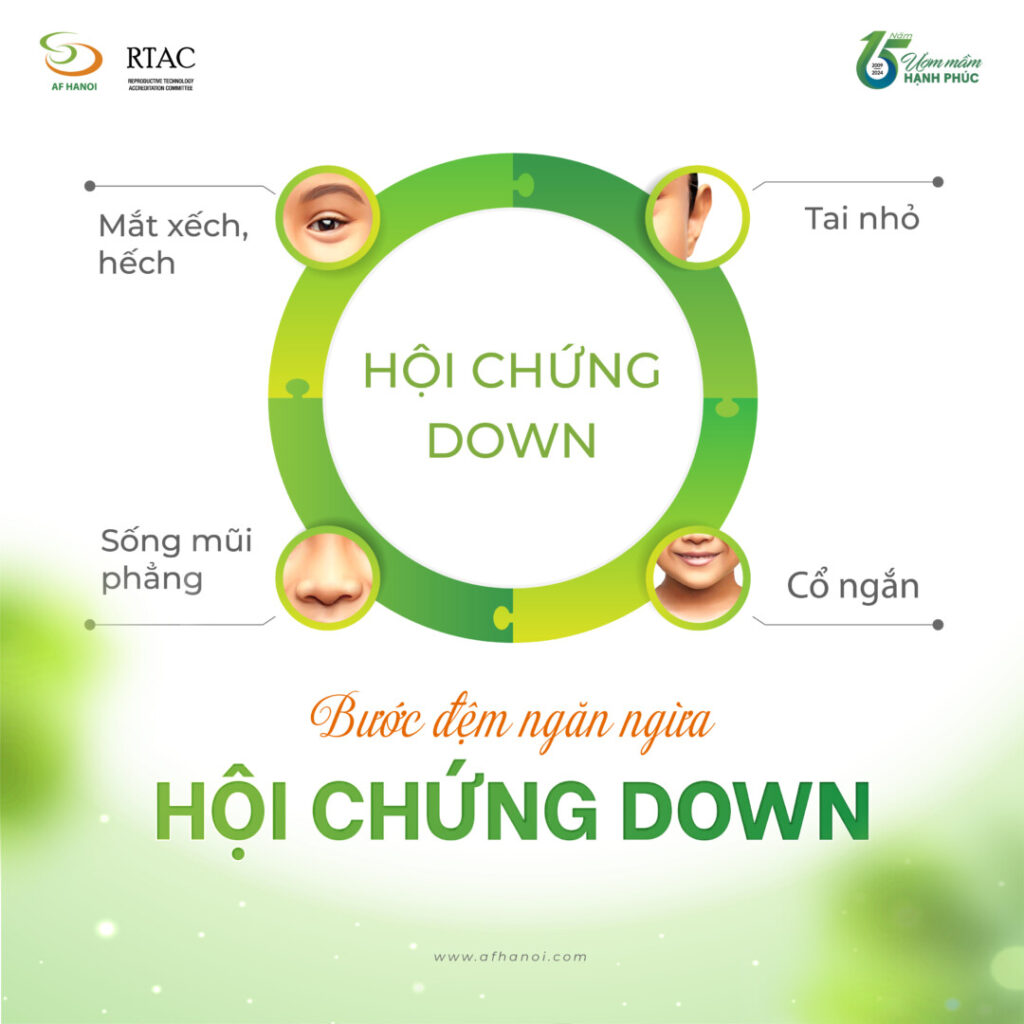29/11/2024

Currently, up to 90% of Down syndrome cases can be detected while the fetus is still in the womb through advanced screening methods. Screening for this condition requires coordination of several factors such as maternal age, ultrasound measurement of nuchal translucency and Down syndrome markers, and blood tests for biological markers (PAPP-A, fHCG, NIPT).
Target Population for Prenatal Screening
The American College of Obstetricians and Gynecologists (ACOG) recommends that all pregnant women undergo screening for birth defects from the early stages of pregnancy to ensure the best health for the fetus.
Choosing the Right Screening Method
Appropriate screening methods should be combined based on the specialist’s recommendations, depending on the pregnancy status. Screening should be performed in the first trimester when the fetus is between 11-13 weeks.
Ultrasound: Helps determine the gestational age, basic measurements, and detect early abnormalities related to Down syndrome, especially when combined with other tests.
Double Test and Triple Test: The double test is performed at 11-13 weeks, while the triple test is performed at 14-16 weeks to provide information about the risk of abnormalities. If signs of risk are detected, NIPT or amniocentesis may be recommended.
NIPT: A test that analyzes the free fetal DNA in the mother’s blood, which can be performed from week 10th with an accuracy rate of up to 99.9%. It is a reliable method for determining the risk of Down syndrome.
In cases where screening results indicate a high risk, the doctor may perform chorionic villus sampling (CVS) or amniocentesis to confirm the diagnosis and provide an appropriate care plan for the pregnancy.
Special Cases For couples with balanced chromosome translocation, particularly translocation involving chromosome 21:
If there is a balanced translocation between two chromosome 21s, the likelihood of having a child with Down syndrome is 100%. In such cases, the optimal solution is to use donated eggs or sperm (depending on whether the father or mother carries the translocation) and perform in vitro fertilization (IVF).
For a balanced translocation between chromosome 21 and another chromosome, the likelihood of abnormal embryos is very high. Therefore, IVF and preimplantation genetic testing for aneuploidy (PGT-A) should be performed to ensure safety.
Early screening for Down syndrome allows parents to be better prepared for the arrival of their child. Proactively screening and seeking advice from healthcare providers will help ensure a safe pregnancy, optimizing the health of both mother and baby.
